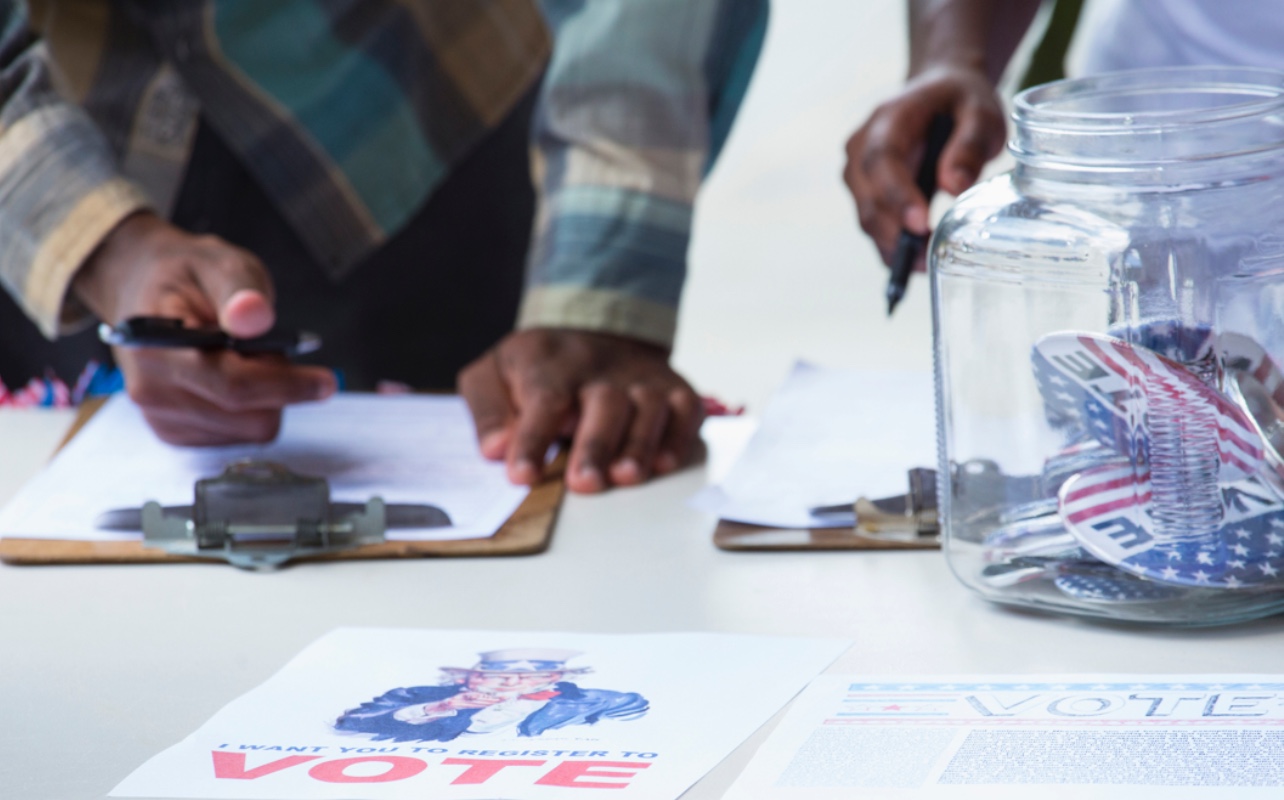New “I Couldn’t Vote” stickers were released to draw attention to voter suppression. Voter rights organization VoteAmerica partnered with Public Domain to design the sticker, Fast Company reported.
Rob Colucci and Zack Roif are co-designers of the initiative. Colucci compared it to the “I Voted” sticker many Americans receive after casting their ballots.
“We hijacked the ‘I voted’ sticker to really kind of give a voice and a face to the millions of people that are suppressed by voting.”
Roif says hearing the stories of people whose votes have been suppressed caught his attention and made him want to take action.
“Once you hear one story [of voter suppression], you sort of can’t look away from the problem.”
The campaign employs multiple methods to educate citizens about voter suppression, including personal testimonials.
VoteAmerica and Public Domain are using stickers to raise awareness. Georgia students have decided to protest.
BLACK ENTERPRISE reported on Georgia students marching at the Atlanta Morehouse campus to protest the Election Integrity Act, SB201, which was voted into law in 2021.
The law bars volunteers from passing out water and food to voters while waiting in lengthy voting lines.
Nicole Carty, the executive director of Get Free, a student organization, spoke about what she calls the law’s “inhumane” stipulations.
“It is so visibly dehumanizing to actually criminalize such an act of humanity and dignity. It really exemplifies the broader inhumanity and inequality of all these voter laws that are happening. It’s not just about not being able to hand out water. Many of the most insidious components of these anti-voter laws are deep in the bureaucracy and Jim Crow. So, we’re using it to shine a light on what is dehumanizing about these laws.”
The reference to Jim Crow harkens back to policies designed to keep Black people away from the ballot box. Policies like the “grandfather clause” or poll taxes placed financial and historical barriers in voter’s way.
While the restrictive policies began in the 1800s, they were still employed well into the Jim Crow era.
“It was not until Pres[ident] Lyndon B. Johnson introduced the Voting Rights Act of 1965, which Congress was able to put an end to the discriminatory practice,” cites the Encyclopedia Britannica.
RELATED CONTENT: Queen Latifah Encourages People To Vote For Kamala Harris






